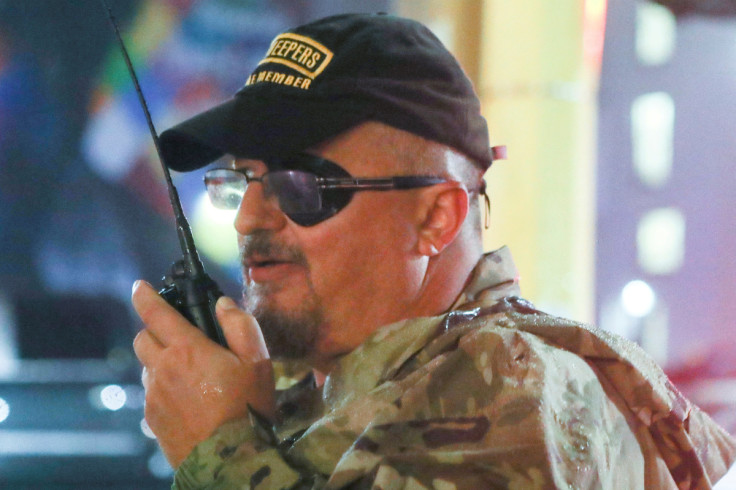'It Was Chaotic' -FBI Witness To Testify For Second Day In Oath Keepers Trial

Prosecutors on Tuesday were set to continue questioning their first witness in the trial of Oath Keepers founder Stewart Rhodes and his associates for their alleged role in the storming of the U.S. Capitol, following a first day of testimony about a "chaotic" scene with lawmakers in tears.
Rhodes and his co-defendants Thomas Caldwell, Kenneth Harrelson, Kelly Meggs and Jessica Watkins are accused of conspiring to prevent Congress on Jan. 6, 2021, from certifying Democratic President Joe Biden's election victory in a failed bid to keep Donald Trump, a Republican, in power.
In their opening statement on Monday, prosecutors told a jury that Rhodes and the other defendants had plotted to do whatever it took to prevent the transfer of presidential power. Rhodes told his followers, "we must prepare for civil war" in an encrypted Signal message.
Defense attorneys vowed that the evidence would show that the Oath Keepers were a peace-keeping force and that the defendants had done nothing illegal.
FBI Special Agent Michael Palian, the government's first witness, testified on Monday that he was assigned to help escort senators back to their chambers to finalize certifying the election once the Capitol had been cleared of the rioters.
"It was chaotic," Palian said of the scene, in which he witnessed lawmakers crying.
"It looked like a bomb had gone off in there. There was pepper spray and tear gas everywhere."
Palian identified the defendants in video footage taken at the Capitol during the riot and testified about text messages that the FBI had recovered from the defendants' cellphones.
Trump supporters stormed the Capitol after the former president falsely claimed the election had been stolen from him through widespread fraud. Five people died during or shortly after the riot, and about 140 police were injured.
The five on trial face numerous felony charges, including seditious conspiracy - a Civil War-era statute that is rarely prosecuted and carries a statutory maximum sentence of 20 years in prison.
Prosecutors have said the defendants trained and planned for Jan. 6, stockpiling weapons at a northern Virginia hotel outside the capital for a so-called "quick reaction force" that would be ready if called upon to transport arms into Washington.
As lawmakers met to certify Biden's election victory, some Oath Keepers charged into the Capitol building, clad in paramilitary gear.
The government and extremist monitoring groups have characterized the Oath Keepers as a far-right anti-government group, some of whose members have ties to militias. Some of the members include current and former military and law enforcement personnel.
Rhodes, a Yale-educated attorney and former U.S. Army paratrooper, has disputed that characterization.
© Copyright Thomson Reuters {{Year}}. All rights reserved.





















